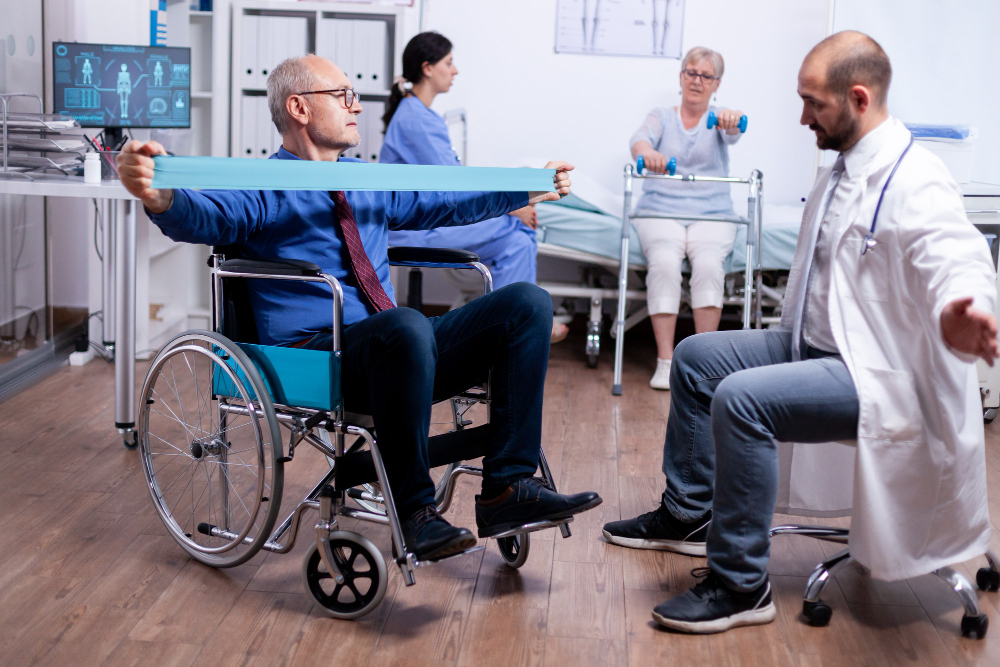
Innovative Therapies for Modern Stroke Rehabilitation
Stroke recovery is about regaining independence, dignity,
and quality of life. Being the top-rated strokerehabilitation center in Thrissur, Bethel combines classical
physiotherapy with advanced methods to promote accelerated, more efficient
rehabilitation. With the correct strategy, stroke survivors can relearn daily
activities, enhance coordination, and strengthen body and mind.
The History of Stroke Rehabilitation
Rehabilitation for stroke survivors has evolved beyond what
was practiced in the past. In the past, rehabilitation consisted of just
passive exercises and simple mobility training. Practice has progressed to one
that prioritizes neuroplasticity—the brain's ability to form new connections
and rewire itself entirely for recovery. Today's stroke survivorship
rehabilitation includes task-specific training, electrical stimulation, and
technology-based approaches that fully access neuroplasticity. Here at Bethel,
we have access to current best practice information and implement techniques
that allow our stroke patients to experience a personalized and progressive
rehabilitation through a tailored approach. Our specialist team comprises all
members collaboratively developing evidence-based care plans with an outcome
focus, led by the best physiotherapist in Thrissur who
understands stroke rehabilitation nuances.
Modern Therapies That Make a Difference
1. Functional Electrical Stimulation (FES)
Low-level electrical currents are used to stimulate
paralyzed muscles so that the patient is able to regain muscle coordination and
control, especially of hands, arms, or feet.
2. Robot-Assisted Therapy
Robot systems can assist with repetitive exercises, allowing
the patient to practice walking or arm movement with proper support.
3. Virtual Reality (VR) and Mirror Therapy
VR is a rehabilitative approach that allows stimulating
activities that imitate real-world activities, which in turn increases the
patient's motivation and stimulates neuro-retraining. Mirror therapy confuses
the brain into thinking that the affected limb is moving, allowing for
neuro-repair.
4. Constraint-Induced Movement Therapy (CIMT)
By limiting the substantial use of the intact limb, CIMT
encourages the use of the weaker limb, causing the brain to concentrate on the
weaker side in order to increase strength and usage.
5. Sensory Re-Education
This technique promotes retraining the brain to register
sensation, such as touch and temperature. Sensory re-education can be useful
for patients who lose sensory input to their limbs.
These established therapies reinforce traditional
physiotherapy exercises, including exercises promoting balance, retraining
gait, and strengthening exercises for a holistic recovery. All sessions are
supervised and guided by the best physiotherapistThrissur has to offer, ensuring personalized attention and optimal
outcomes.
A Patient-Centric Environment
What is special about Bethel is our inclusive, thoughtful
approach. We design rehabilitation programs around each patient's abilities and
needs. We look at not just the physical aspects of rehabilitation but also the
emotional resilience and confidence. As we are the leading physiotherapy
service providers in Kerala, our emphasis is on helping stroke survivors
achieve functional independence. We also provide home physiotherapy for
patients who cannot come, so no one is left out of exceptional care just because
of movement or location constraints.
The Right Place to Recover
Choosing where to go for stroke rehabilitation is important.
Being in a motivating environment and working with therapists who have
experience and evidence-based practices could be the difference between
rehabilitating and not rehabilitating. Bethel refuses to be anything less than
the best rehabilitation center in Thrissur,
merging technology and humanity. It all begins with the right support,
commitment, and shared belief to heal. Reach out today to explore how our
customized stroke rehabilitation plans can empower your next step forward.




